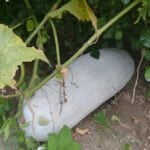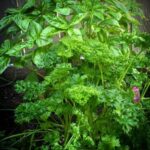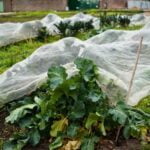Are worms good for vegetable gardens? The health of the soil in your vegetable garden plays a crucial role in the success of your crops. Soil that is rich in nutrients, well-aerated, and has good water-retention properties is essential for the optimal growth of vegetables. In this article, we will explore the importance of healthy soil for vegetable gardens and specifically look at the role of worms in achieving and maintaining that healthy environment.
Worms are known to be beneficial for vegetable gardens due to their role in soil health. They play a crucial part in aerating the soil and cycling nutrients, which are essential for plant growth. By understanding how worms contribute to soil health, gardeners can learn to harness their benefits for their own vegetable gardens.
Furthermore, we will delve into the unique benefits that worms bring to vegetable gardens, including improving soil structure and water retention, as well as promoting overall plant health. By exploring these advantages, gardeners can gain a deeper appreciation for the importance of nurturing a thriving worm population in their gardening environment. With this understanding, gardeners can better appreciate the ways in which worms contribute to creating an ideal growing environment for their vegetables.
The Role of Worms in Soil Health
Worms play a crucial role in maintaining the health of soil in vegetable gardens by contributing to soil aeration and nutrient cycling. These activities are essential for creating an environment where plants can thrive and produce high yields.
Soil Aeration
One of the most important roles that worms play in soil health is the facilitation of soil aeration. As worms tunnel through the soil, they create channels that allow for better air circulation. This aeration is vital for root development and overall plant growth, as it ensures that the roots have access to oxygen, which is necessary for various metabolic processes within the plant.
Nutrient Cycling
In addition to soil aeration, worms also contribute to nutrient cycling in the soil. As worms consume organic matter such as decaying leaves and other debris, they break it down into smaller particles. This process releases nutrients from the organic matter and makes them available to plants in a form that can be easily absorbed. Worms then excrete waste materials, known as castings, which are rich in nutrients like nitrogen, phosphorus, and potassium – all essential elements for healthy plant growth.
Overall Impact on Soil Health
The combined effect of worm activity on soil aeration and nutrient cycling results in improved soil structure, better water retention, and increased microbial activity. All of these factors contribute to healthier, more productive vegetable gardens. So, while worms may not seem glamorous or exciting at first glance, their contributions to soil health are invaluable for gardeners looking to maximize their yields and keep their plants thriving throughout the growing season.
The Benefits of Worms in Vegetable Gardens
Worms play a crucial role in maintaining the health of soil in vegetable gardens. The presence of worms significantly improves soil structure, water retention, and overall plant health. Their activities help aerate the soil, promote nutrient cycling, and create a healthy environment for plant growth.
One of the key benefits of worms in vegetable gardens is their contribution to improving soil structure. As they burrow through the soil, they create channels that allow air and water to penetrate deeper into the ground. This process, known as soil aeration, helps to prevent compaction and allows roots to access essential nutrients and oxygen. Additionally, the castings produced by worms act as natural fertilizers, enhancing the fertility of the soil and promoting healthy plant growth.
Furthermore, worms also play a critical role in retaining moisture in the soil. By creating pathways for water to penetrate and be stored within the ground, they help prevent erosion and reduce surface runoff. This ultimately results in better water retention and utilization by plants within the vegetable garden. As a result, plants are less susceptible to drought stress and can thrive even during dry periods.
Overall, it is clear that worms are indeed good for vegetable gardens as they contribute significantly to improving soil structure, water retention, and overall plant health.
| Benefit | Contribution |
|---|---|
| Soil Structure Improvement | Aerates the soil and prevents compaction |
| Water Retention | Creates pathways for water storage within the ground |
| Plant Health | Enhances fertility of the soil for healthy plant growth |
Types of Worms for Gardening
There are several different species of worms that can be found in vegetable gardens, each making their own unique contributions to soil health and plant growth. One common type of worm is the red wiggler, also known as Eisenia fetida.
Red wigglers are highly efficient at breaking down organic matter and producing nutrient-rich castings that enhance soil fertility. Another beneficial species is the European nightcrawler, scientifically named Eisenia hortensis, which burrows deeper into the soil than red wigglers, helping to improve soil structure and aeration.
Earthworms play a crucial role in maintaining healthy soil by creating tunnels that allow air and water to penetrate through the ground. This process, known as bioturbation, helps to prevent soil compaction and enhances the overall health of the root systems of plants in vegetable gardens. Additionally, worms consume organic material such as fallen leaves, decaying roots, and other debris in the soil, breaking it down into nutrient-rich castings that provide essential nutrients to plants.
In a study conducted by researchers at Ohio State University, it was found that earthworms can increase the amount of nitrogen available to plants by up to 33%. This demonstrates the significant impact that worms can have on improving soil fertility and promoting healthy growth in vegetable gardens.
| Worm Species | Contributions |
|---|---|
| Red Wiggler (Eisenia fetida) | Efficient at breaking down organic matter and producing nutrient-rich castings |
| European Nightcrawler (Eisenia hortensis) | Burrows deep into the soil to improve structure and aeration |
How to Attract Worms to Your Garden
If you want to take advantage of the benefits that worms bring to vegetable gardens, it’s important to create a hospitable environment that will attract them. Here are some tips and techniques for attracting worms to your garden:
- Avoid using chemical fertilizers and pesticides: Chemicals can be harmful to worms, so opt for organic fertilizers and natural pest control methods instead.
- Add organic matter to the soil: Worms feed on decaying organic matter, so adding compost, mulch, or leaf litter to your garden will provide them with food and encourage them to make themselves at home.
- Provide moisture: Worms need a moist environment to thrive, so be sure to water your garden regularly and consider adding a source of water such as a shallow dish or saucer.
- Create a comfortable habitat: Worms prefer dark, cool, and undisturbed environments, so consider providing cover such as rocks or boards to create a sheltered space for them.
By implementing these practices in your garden, you can increase the likelihood of attracting a healthy population of worms that will help improve the overall health and productivity of your vegetable plants.
Remember that while attracting worms is beneficial for your garden, it’s also important to avoid practices that could harm them. For instance, tilling the soil too frequently or using excessive amounts of chemical fertilizers can have adverse effects on worm populations. By creating a favorable habitat and avoiding harmful practices, you can ensure that your vegetable garden becomes a welcoming home for these beneficial creatures.
Vermicomposting
How Vermicomposting Works
In vermicomposting, worms, especially red wigglers, play a crucial role in decomposing organic matter. As these worms consume the material, they excrete castings that are rich in essential nutrients like nitrogen, phosphorus, and potassium. These worm castings improve soil structure by increasing its water-holding capacity and promoting beneficial microbial activity. Additionally, vermicompost contains beneficial microorganisms that help protect plants from diseases and pests.
The Benefits of Using Worm Castings
The use of worm castings as a soil amendment offers numerous advantages for vegetable gardens. The slow-release nature of nutrients in vermicompost provides long-term nourishment for plants, promoting healthy growth and increased resistance to stress. Furthermore, the presence of beneficial microorganisms in worm castings supports soil fertility and enhances overall plant health. By incorporating worm castings into the soil, gardeners can improve yields and produce high-quality vegetables.
Implementing Vermicomposting in Your Garden
To start vermicomposting at home, it is important to create an optimal environment for the worms to thrive. This includes providing suitable bedding material for the worms to live in and regular additions of food scraps for them to consume.
It’s also crucial to maintain proper moisture levels in the vermicompost bin and ensure adequate aeration for the worms. With these considerations in mind, gardeners can successfully integrate vermicomposting into their vegetable gardening practices to boost soil fertility and plant productivity.
Common Misconceptions About Worms in Gardens
There are many misconceptions about the role of worms in vegetable gardens. These misunderstandings can lead to confusion and misinformation, ultimately impacting the health and productivity of your garden. It’s important to address these myths and set the record straight on the benefits of worms in vegetable gardening.
One common misconception is that worms are harmful to vegetable gardens. In reality, worms play a vital role in maintaining healthy soil for vegetable plants. Their burrowing activities help to aerate the soil, improving root growth and nutrient uptake. Additionally, worms contribute to nutrient cycling by breaking down organic matter into valuable nutrients that plants can access.
Another myth is that all worms are beneficial for vegetable gardens. While it’s true that many species of worms have positive effects on soil health, not all worms are equally helpful. For example, invasive earthworm species can disrupt native ecosystems and alter soil composition in ways that are detrimental to certain plant species. It’s important for gardeners to be aware of the types of worms present in their gardens and how they contribute to overall soil health.
Finally, some people believe that vermiculture (raising worms for composting) is too complicated or time-consuming for the average gardener. However, vermicomposting can actually be a simple and effective way to create nutrient-rich compost for vegetable gardens. By providing a suitable environment for worm activity, such as adding organic materials like kitchen scraps or shredded paper, gardeners can harness the power of worms to produce high-quality compost without much effort.
- Worms aerate the soil
- Not all worm species are beneficial
- Vermicomposting is a simple way to create nutrient-rich compost
Maintaining a Healthy Worm Population
In conclusion, worms are indeed good for vegetable gardens. Their role in soil health is crucial for creating a thriving environment for plant growth. From contributing to soil aeration and nutrient cycling to improving soil structure and water retention, worms offer a range of benefits that directly impact the overall health of your garden.
It’s important to understand the different types of worms commonly found in vegetable gardens and how each species contributes to the ecosystem. By attracting and maintaining a healthy worm population in your garden, you can ensure that these helpful creatures continue to work their magic below the surface.
Implementing practices such as vermicomposting can also further support the presence of worms while providing nutrient-rich compost for your vegetable garden. By dispelling common misconceptions about worms in gardens and following tips for creating a worm-friendly environment, you can sustain a thriving worm community that will ultimately lead to healthier, more productive plants. Overall, prioritizing the well-being of your garden’s worm population is key to reaping the full benefits they offer for vegetable gardening.
Frequently Asked Questions
Should I Add Worms to My Vegetable Garden?
Adding worms to your vegetable garden can be beneficial for the soil. Worms help aerate the soil, improve drainage, and break down organic matter, which can provide nutrients for your plants.
Can You Have Too Many Worms in Your Vegetable Garden?
It’s unlikely to have too many worms in your vegetable garden. The presence of worms indicates healthy soil and they help maintain the balance of nutrients, moisture, and air in the soil.
Will Worms Eat My Vegetables?
While worms may nibble on the roots of vegetables when organic matter is scarce, they generally do not eat living plant tissue. Instead, they consume decaying organic matter in the soil, helping to break it down and enrich the soil with their castings.

If you’re looking to get into vegetable gardening, or are just looking for some tips on how to make your current garden better, then you’ve come to the right place! My name is Ethel and I have been gardening for years. In this blog, I’m going to share with you some of my best tips on how to create a successful vegetable garden.





